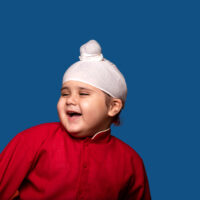anxiety
-

The association between anxiety and poor school attendance
School plays a key role in children’s development, and frequent absence from school increases the likelihood of a range of adverse outcomes in childhood and later life. This includes poor academic performance, social isolation, economic deprivation and unemployment in adulthood. There are many risk factors for frequent school absence, including factors related to the child and their family, school and community.
Read more -

Child anxiety could be factor in school absences, research concludes
New research has concluded that anxiety can be a factor in poor school attendance among children and young people.
Read more -

Most Cited JCPP Articles #2 of 60
Most cited JCPP papers #2 of 60: Twenty years’ research on peer victimization and psychosocial maladjustment: A meta-analytic review of cross-sectional studies
Read more -

Most Cited JCPP Articles #9 of 60
Most cited JCPP papers #9 of 60: Antenatal maternal stress and long-term effects on child neurodevelopment: how and why?
Read more -

Can physical exercise improve tics and associated mental health difficulties in Tourette syndrome? The jury is out
Physical exercise is increasingly being recommended as part of management for children and young people with mental health problems. There is a growing evidence base that shows physical exercise is associated with improvements in functioning for conditions such as attention deficit hyperactivity disorder (ADHD), although studies are small, they are signifcant.
Read more -

Anxiety Disorders
Anxiety disorders in children and young people are common and can have a significant impact on mental health and well-being. Anxiety disorders can affect family, school and social life, leisure activities and educational achievement and they often occur alongside other mental health problems.
Read more -

Cognitive training
An introduction to cognitive training approaches, including working memory training, Cognitive Bias Modification (CBM) and Attentional Bias Modification Treatment (ABMT).
Read more -

School-based interventions
Children and young people spend a great deal of time at school, so it has an important role to play in their development. Time spent in school impacts not just on academic and cognitive progress, but also on social interactions, peer relationships, emotional regulation and behaviour. All these areas affect, and are affected by, mental health (Fazel et al, 2014).
Read more -

Sleep
Children and adolescents who are experiencing difficulties with their mental health also often struggle with their sleep. Indeed disrupted or altered sleep has been associated with most psychiatric disorders (Gregory & Sadeh, 2016). Although a range of sleep difficulties can co-occur with mental health problems, a common difficulty is insomnia. As such this guidance will primarily focus on difficulties with getting to sleep and staying asleep.
Read more -

Tourette Syndrome
Tourette Syndrome (TS) is a neurological condition that is estimated to effect over 300,000 children and adults in the UK; and one school child in every hundred.
Read more